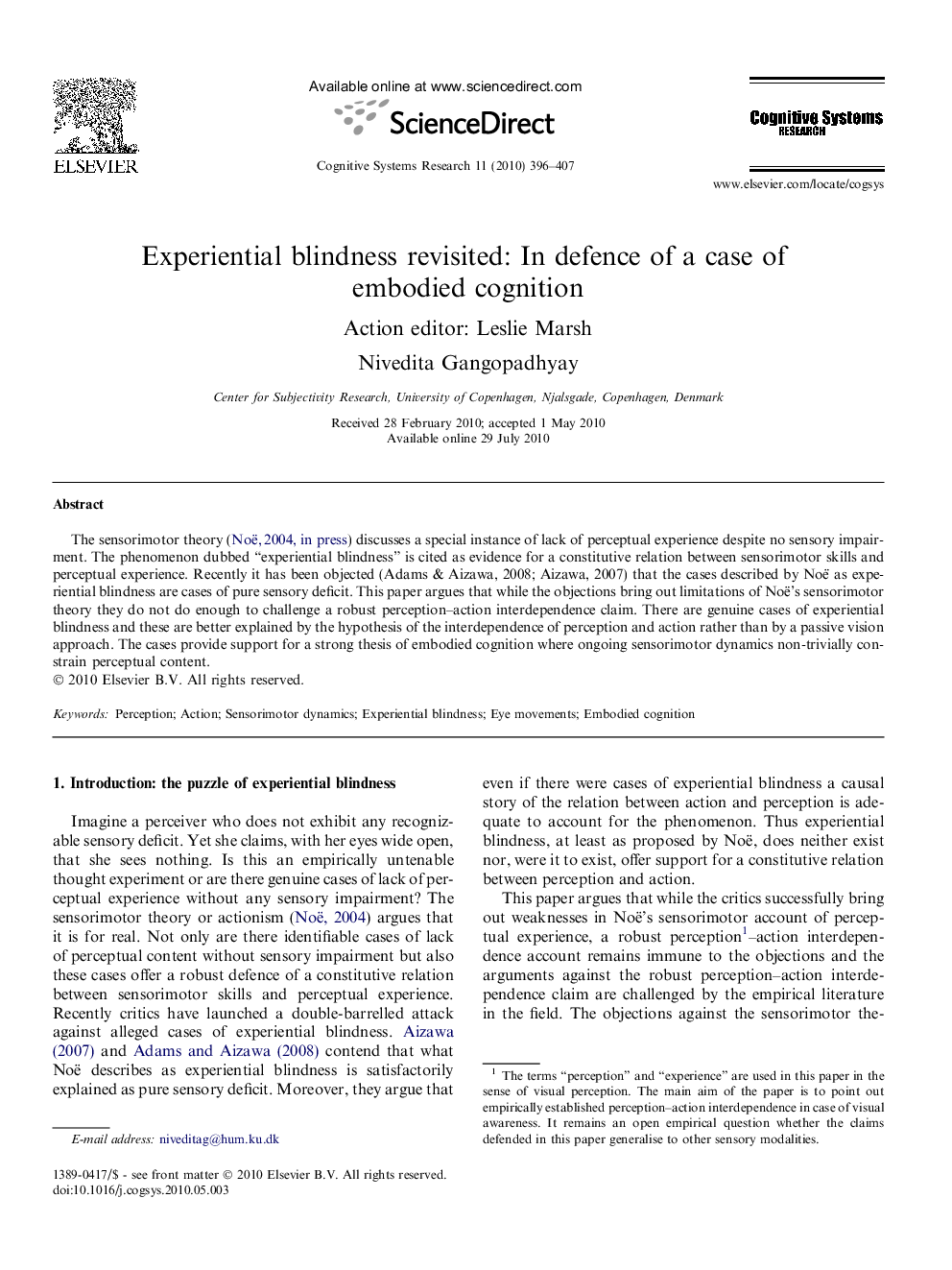| Article ID | Journal | Published Year | Pages | File Type |
|---|---|---|---|---|
| 378494 | Cognitive Systems Research | 2010 | 12 Pages |
The sensorimotor theory (Noë, 2004 and Noë, in press) discusses a special instance of lack of perceptual experience despite no sensory impairment. The phenomenon dubbed “experiential blindness” is cited as evidence for a constitutive relation between sensorimotor skills and perceptual experience. Recently it has been objected (Adams and Aizawa, 2008 and Aizawa, 2007) that the cases described by Noë as experiential blindness are cases of pure sensory deficit. This paper argues that while the objections bring out limitations of Noë’s sensorimotor theory they do not do enough to challenge a robust perception–action interdependence claim. There are genuine cases of experiential blindness and these are better explained by the hypothesis of the interdependence of perception and action rather than by a passive vision approach. The cases provide support for a strong thesis of embodied cognition where ongoing sensorimotor dynamics non-trivially constrain perceptual content.
